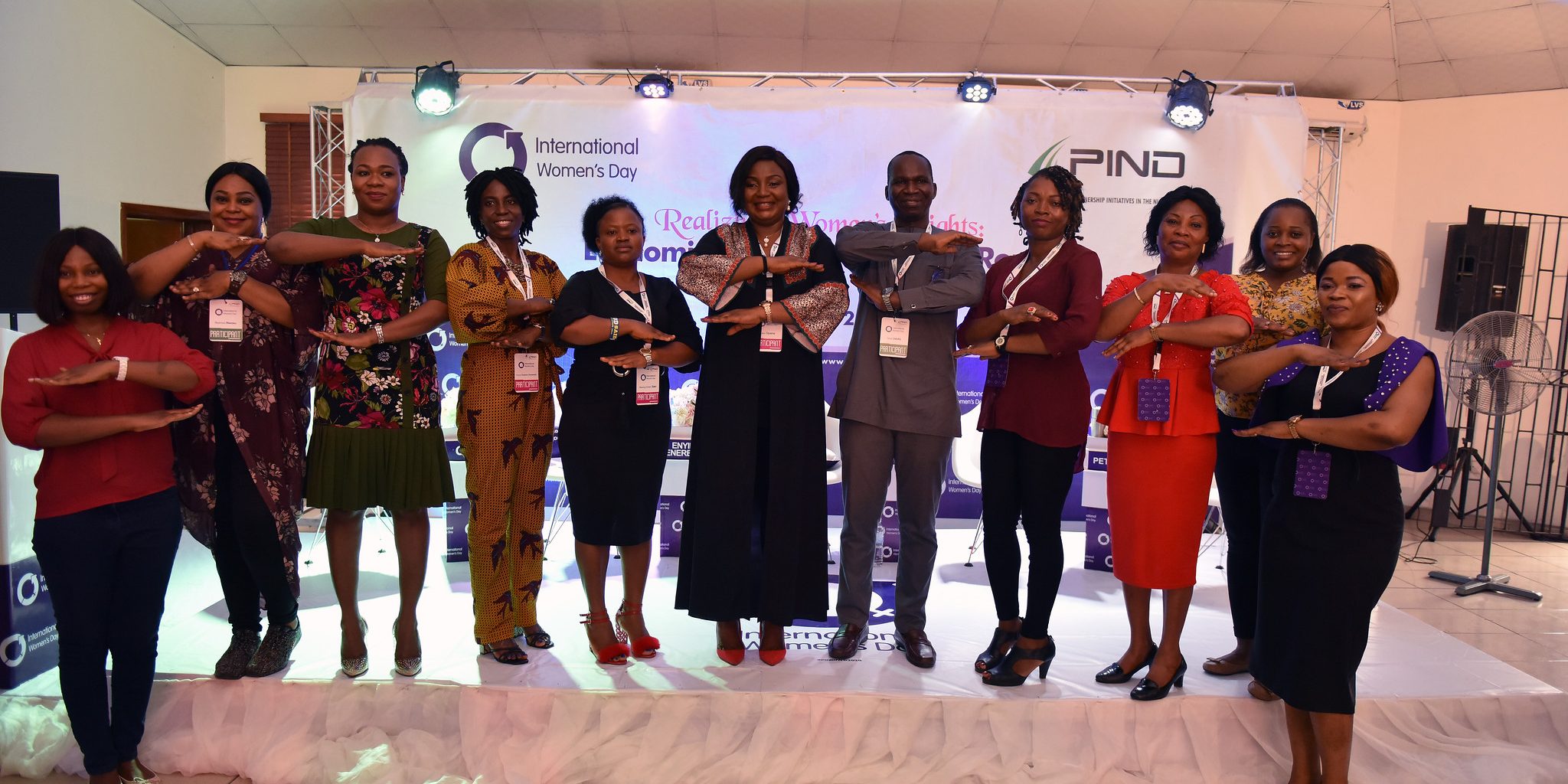OPENING REMARKS DELIVERED BY JAMES ELEKWACHI, ECONOMIC DEVELOPMENT PROGRAM MANAGER, FOUNDATION FOR PARTNERSHIP INITIATIVES IN THE NIGER DELTA (PIND) AT THE 2020 INTERNATIONAL WOMEN’S DAY ROUNDTABLE AT PIND’S ECONOMIC DEVELOPMENT CENTRE, WARRI, DELTA STATE ON MARCH 19, 2020
Distinguished guests,
Ladies and gentlemen
Good morning, and welcome to the Roundtable on Realizing Women’s Rights: Economic Development and Peacebuilding Routes organized by the Foundation for Partnership Initiatives in the Niger Delta (PIND Foundation) to commemorate the 2020 International Women’s Day.
I know many of you came from various locations in buses, boats and other means to join us here today and your presence gives me great pleasure as it attests to the importance you attached to this event.
PIND Foundation is a Nigerian non-profit organization established by Chevron Corporation to build partnerships for peace and equitable economic development in the Niger Delta. The enormity of development issues in Niger Delta is huge. At PIND Foundation, our overarching strategy is built on the belief that no single organization alone can solve the complex and interconnected challenges in the Niger Delta region.
We have adopted the partnership approach based on the fact that it enables organizations to combine resources, capabilities and technical expertise with others for greater collective impact.
PIND’s Economic Development program grows businesses, boosts productivity and income for small holder farmers and Micro, Small and Medium Enterprises (MSMEs). To enable integrated peace and economic growth, PIND’s Peace Building program strengthens conflict resolution mechanisms and fosters stability through a regional network of peace actors and an early warning and early response infrastructure.
The fifth Sustainable Development Goal (SDG) urges all stakeholders to work towards achieving gender equality and to empower all women and girls. In advancement of this goal, PIND has, from inception, placed women and girls at the heart of our work, working closely our partners on the ground to ensure that we spread the benefits of our program interventions to women, who are most marginalised in the region.
For us, gender-mainstreaming is not only about including women as intervention beneficiaries. It is also about deliberately addressing issues limiting women’s economic and social wellbeing. That is why over the years, we have empowered and facilitated opportunities for thousands of women such as access to fit for purpose efficient technologies and also championed women’s issues such as violence against women and girls.
The international women’s Day (March 8) is a day set aside globally to celebrate the achievements of women in all spheres of life, advocate for more opportunities for women and girls, and strategize to address challenges women and girls encounter in the course of achieving their goals. This year’s global theme is: I am generation equality: realizing women’s rights and the central objective is to take stock of progress made in promoting women’s rights since the adoption of the Beijing Platform for Action, 25 years ago.
It is against this backdrop that the Foundation for Partnership Initiatives in the Niger Delta (PIND) is organizing this one-day Roundtable today to, along with our partners and beneficiaries, take stock of the progress we have made in gender mainstreaming in the last 10 years in the Niger Delta.
Distinguished ladies and gentlemen, this Roundtable offers us the opportunity to discuss and analyse where and how we have succeeded in empowering women economically and in creating women peace champions and change agents. In addition, we will discuss challenges impeding our progress in implementing gender strategies, and develop priority actions to address these challenges, building on the lessons we have learned together through these years.
Having stakeholders participate in the co-development of ideas, solutions and responsibilities is vital. More than ever before, we need dialogue platforms like this Roundtable to engage in meaningful discussions required for setting directions together and working smarter together towards gender equality in the Niger Delta. We cannot afford to be disconnected in vison and purpose at this critical time as the beginning of the sustainable development goal number 5 that we all yearn for in the region lies in effective dialogue and shared learning.
What we want to do today is to make this Roundtable very interactive. A team’s collective intelligence is predicted by how equally team members participate.
If we contribute actively to the Roundtable, I am confident that the outcomes from the discussions will play an important role in setting the economic development and peacebuilding gender equality agenda for us for the next decade of action and encourage innovative and localized solutions that can shape attainment of SDG number 5 in the Niger Delta.
Last but not least, I would like to thank you all in the room for coming. You are actually the Roundtable and I very much look forward to your discussions.




